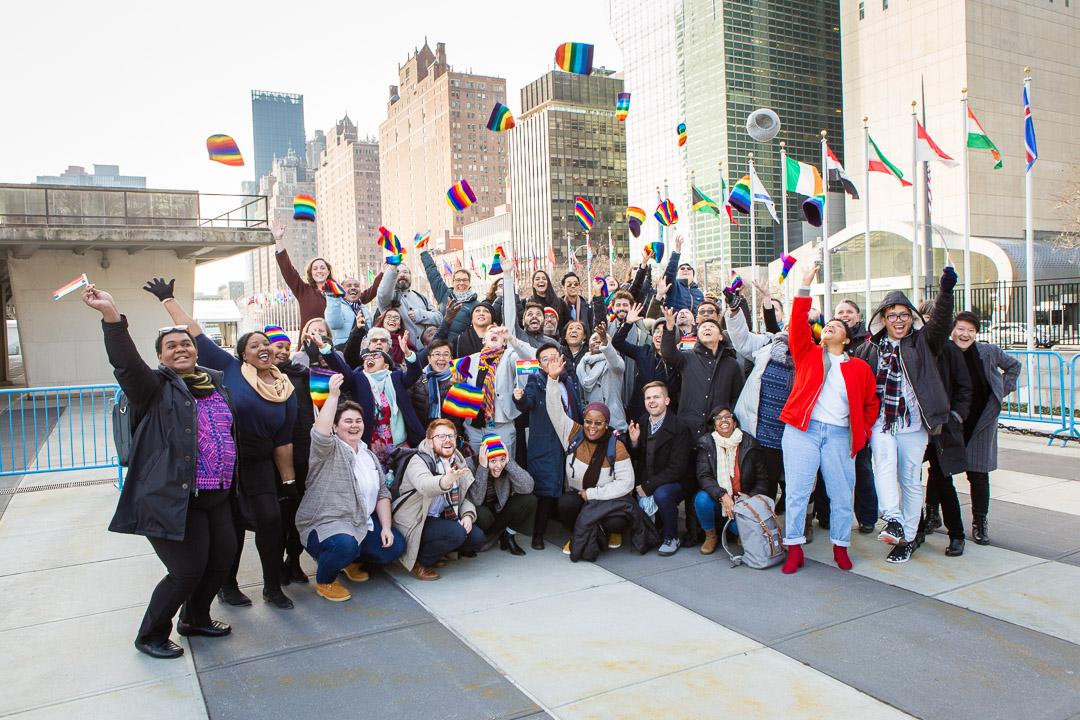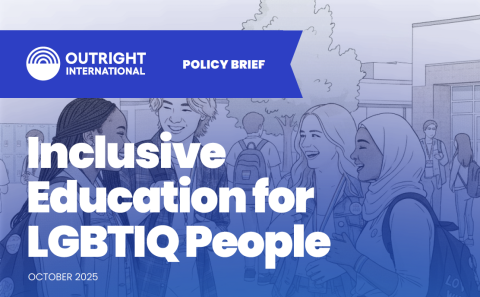
Report
Inclusive Education for LGBTIQ People
Schools should be safe and inclusive spaces for all. States must eliminate anti-LGBTIQ discrimination and violence in schools and ensure equal access to education to achieve the Sustainable Development Goals and uphold their international human rights obligations.
Key Points from Outright International's Policy Brief on Inclusive Education for LGBTIQ People
- Everyone has the right to education. Discrimination in accessing education on the basis of sexual orientation, gender identity, gender expression, or sex characteristics is a violation of international law.
- The 2030 Agenda for Sustainable Development, adopted by all member states of the United Nations (UN), includes a target of quality education for all and is built on the premise that no one should be left behind.
- Despite the human rights-based and economic benefits of equal access to education, anti-LGBTIQ discrimination in schools is widespread. It includes unchecked bullying, harassment, expulsions, and other disciplinary measures, and enforcement of cisheteronormativity. Perpetrators include students, teachers, administrators, and staff.
- Gendered dress codes and exclusionary access to bathrooms, sports, and extracurricular activities have a particular detrimental impact on trans, nonbinary, and intersex children’s access to education.
- Bans on so-called gender ideology, censorship of educational materials, and the failure to provide comprehensive sexuality education limit all children’s educational outcomes and perpetuate exclusion.
- States have a responsibility to protect all students, including LGBTIQ students, and should urgently remove barriers to educational equality in order to achieve the Sustainable Development Goals and comply with international human rights standards.

Explore News and Commentaries
We share news, cultural media and advocacy of partners, activists and experts through the lens of LGBTIQ people working on international human rights.
Read Our Insights